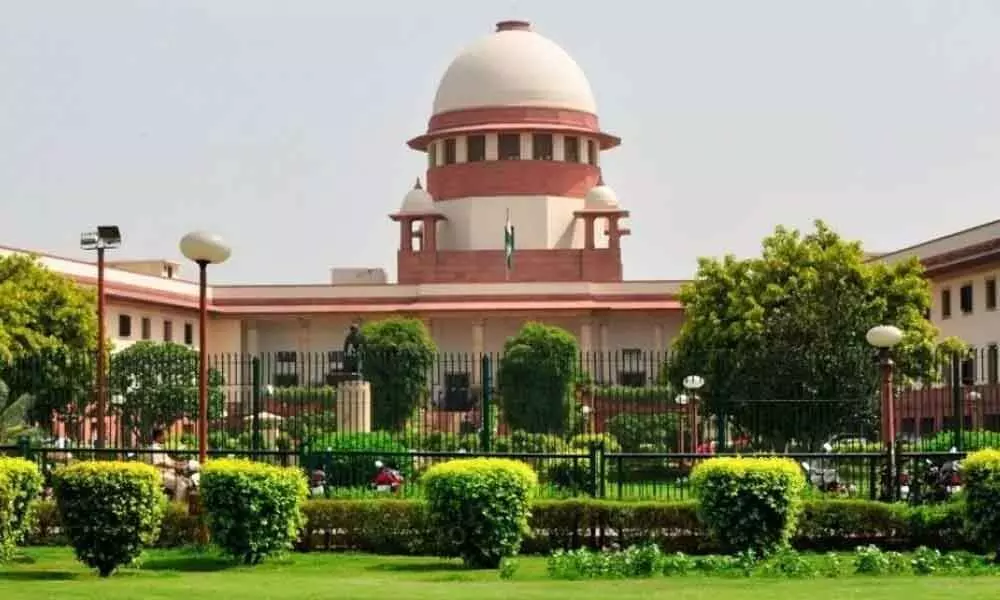Rehan Khan
In a significant ruling on Friday, August 9, the Supreme Court of India stayed the implementation of a controversial dress code issued by NG Acharya & DK Marathe College in Mumbai, which banned students from wearing hijab, caps, or badges on campus. The court’s interim order came in response to a petition filed by three Muslim women students challenging a Bombay High Court judgment that had upheld the college’s directive.
A Division Bench comprising Justices Sanjiv Khanna and PV Sanjay Kumar expressed strong reservations about the college’s rationale behind the ban. The college had argued that the dress code was intended to prevent the revelation of students’ religious identities. However, the Supreme Court found this reasoning both surprising and problematic.
Justice Khanna, while addressing the college’s claim, questioned, “What is this? They will not reveal their religion? Don’t impose such a rule.” He further remarked on the inherent contradiction in the college’s argument by pointing out that students’ names could also disclose their religious affiliations. Justice Kumar echoed these concerns, rhetorically asking, “Will you ask them to be given numbers so that they are not addressed by name?”
The petitioners, represented by Senior Advocate Colin Gonsalves, argued that the college’s dress code violated their fundamental rights under the Constitution, including the right to freedom of expression and religion. They contended that the restriction on wearing hijabs, caps, and other religious attire was arbitrary and discriminatory. The students had previously approached the Bombay High Court, which dismissed their plea on June 26, 2024. The High Court had upheld the college’s dress code, stating that it aimed to promote uniformity among students and prevent the disclosure of religion within the educational environment.
During the Supreme Court hearing, Senior Advocate Madhavi Divan, representing the college, defended the dress code by stating that it was a private, unaided institution and that the rule was necessary for maintaining discipline and fostering an academic environment free from religious distinctions. She mentioned that out of 441 Muslim women students at the college, only a few had raised objections to the dress code. However, Justice Khanna was not convinced by this argument, pointing out the broader implications of such restrictions on individual freedom and empowerment. “How are you empowering women by telling them what to wear? Less said the better. Where is the choice for the woman? You have suddenly woken up to the fact that they are wearing it. It is unfortunate that these all being said after so many years of independence and you say religion is there in this country,” he asked.
The Bench also addressed the issue of face-covering veils like the niqab and burqa. While the court agreed that such coverings could pose barriers to interaction in a classroom setting, it refrained from interfering with this aspect of the college’s instructions. However, the stay order specifically applied to the ban on hijabs, caps, and badges, emphasizing that the interim relief granted should not be misused.
Justice Khanna also made a poignant observation about the socio-cultural backgrounds of the students, noting that many may be compelled by family or community pressures to adhere to specific dress codes. He advised the college authorities to approach the matter with sensitivity and to focus on providing a proper education rather than imposing rigid rules.
The Bench further noted that the college authorities could seek a modification of the order if any misuse was observed. The court scheduled the next hearing for the week commencing November 18, 2024, when it will further examine the issues raised by the petitioners.
This ruling comes in the backdrop of ongoing debates and legal battles across India regarding the right to wear religious attire in educational institutions. The case also draws parallels with the Karnataka High Court’s decision in 2022, which upheld a government order banning hijabs in schools—a decision that is still pending before the Supreme Court.
Case title: Zainab Abdul Qayyum Choudhary And Ors. Versus Chembur Trombay Education Societys And Ors.,
Case no.: Special Leave Petition (C) Diary No(S). 34086/2024
Bench: Justice Sanjiv Khanna, Justice PV Sanjay Kumar

